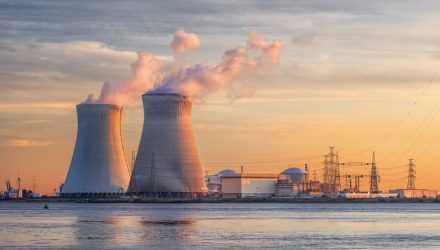By Andrew Poreda, Vice President & ESG Senior Research Analyst
The Europeans are in quite the energy bind, as calmer winds and the shortage of natural gas (where prices have risen over 400% the past year) have many forecasting a challenging winter ahead. The European Net Zero dream has hinged on renewables to save the day, but sometimes the weather just doesn’t cooperate. Does it make sense to simply blame their struggles on the dying wind, or should they re-evaluate their energy future? It’s an interesting crossroad, and perhaps the U.S. can learn from the Europeans’ missteps and seriously consider nuclear power as part of our clean energy solution.
When determining a power mix, one should always consider the “3 Cs” of effective power: cost, cleanliness, and consistency. At the margins, wind and solar (the perceived frontrunner for many in the developed world) can seem inexpensive and clean. Unfortunately, this “cheap” energy isn’t so great when one falls victim to rising commodity prices or rolling blackouts. Countries that rely on natural gas and (gasp!) coal to provide backup energy pay for that redundancy, which essentially cancels out progress toward Net Zero while mixing in negative externalities like air pollution.
The leaders in per capita use of coal are European countries, which have six of the top 10 spots. Germany, the world’s fourth-largest economy, makes that dubious list, yet they also own the distinction of having the world’s most expensive electricity. So, are the German people and their economy really benefitting from their “impressive” 46% renewably powered grid? Probably not. Part of Germany’s power struggles are tied to their response to the Fukushima disaster when they made the knee-jerk reaction to close all nuclear plants by 2022.
But it’s not just Germany. The nuclear industry has clearly suffered over the past decade in the aftermath of what happened in Japan, which was largely a case of bad governance in safety management both before and after the 9.0 magnitude earthquake that wreaked havoc on the country. Having prohibitively expensive projects like the Vogtle power plant in Georgia also doesn’t inspire much confidence that nuclear power can be competitive going forward.
It’s still early days, but new technology might engender somewhat of a renaissance for nuclear power. Concepts like small modular reactors (SMRs) seem to be affordable and safe solutions if Net Zero power is desired. The United Kingdom is serious about nuclear power becoming a more influential part of the power discussion and recently announced a deal with Rolls-Royce to build 16 SMRs. Investors also appear to have jumped back on board the nuclear bandwagon, with uranium prices jumping over 60% in September (the highest since 2014). This was led largely by the excitement surrounding the launch of the Sprott Physical Uranium Trust Fund.
Sage strongly feels that stakeholders worldwide need to seriously consider nuclear power in our clean energy future. We need to effectively balance how much we want to pay for electricity with other factors, like emissions and system reliability and resiliency; renewable power has its limits in striking a great balance, and nuclear power will likely be a better option when weighing all the options.
For a more in-depth discussion on nuclear power, see Sage’s 2019 piece “Is There a Future for Nuclear Power in America?” and the accompanying podcast. Two years later, the discussion is largely similar.
Disclosures: This is for informational purposes only and is not intended as investment advice or an offer or solicitation with respect to the purchase or sale of any security, strategy or investment product. Although the statements of fact, information, charts, analysis and data in this report have been obtained from, and are based upon, sources Sage believes to be reliable, we do not guarantee their accuracy, and the underlying information, data, figures and publicly available information has not been verified or audited for accuracy or completeness by Sage. Additionally, we do not represent that the information, data, analysis and charts are accurate or complete, and as such should not be relied upon as such. All results included in this report constitute Sage’s opinions as of the date of this report and are subject to change without notice due to various factors, such as market conditions. Investors should make their own decisions on investment strategies based on their specific investment objectives and financial circumstances. All investments contain risk and may lose value. Past performance is not a guarantee of future results.
Sage Advisory Services, Ltd. Co. is a registered investment adviser that provides investment management services for a variety of institutions and high net worth individuals. For additional information on Sage and its investment management services, please view our web site at www.sageadvisory.com, or refer to our Form ADV, which is available upon request by calling 512.327.5530.

